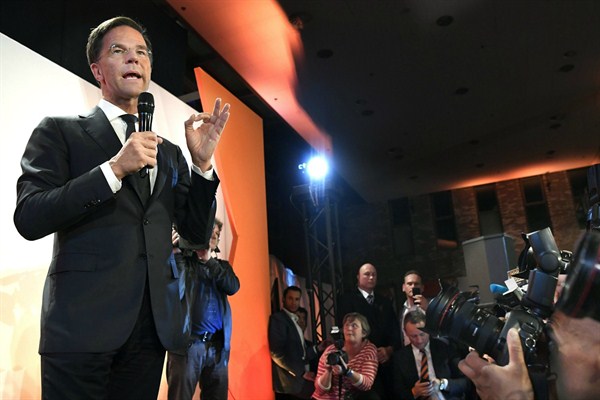It’s no secret why the global media converged on the Netherlands to cover Wednesday’s parliamentary elections. All eyes were on the small European country not because the world has great interest in Dutch politics, but because the elections looked like the third test for an emerging populist movement that had already scored victories in the United Kingdom with the Brexit vote and in the United States with the presidential election of Donald Trump.
It fell to the Dutch, then, to erect a barrier to stop nationalist, anti-immigrant populists from winning three contests in a row. But advocates of moderate, inclusive politics would do well to temper their excitement over the results, which put the center-right People’s Party for Freedom and Democracy (VVD) on top. The success of anti-populist forces in the Netherlands was much less resounding than superficial analysis suggests.
The victory, such as it was, all but ensures that Prime Minister Mark Rutte will form a new centrist coalition and keep his job.

